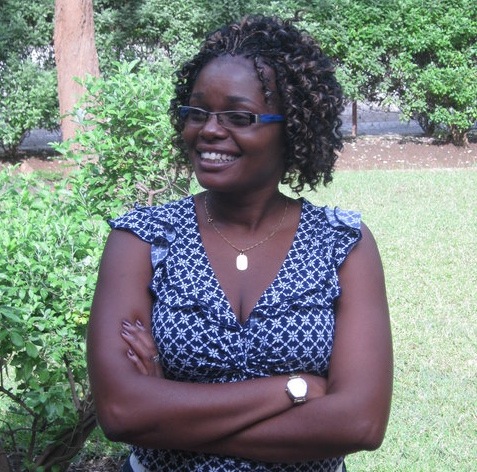Experience a German newsroom
Are you interested in gaining journalism work-experience? Or, getting a different perspective on stories and work-flows? How about doing work-experience in Germany? The International Journalists’ Programmes (IJP) might be an option.
The IJP offer bursaries for up to six young journalists from SADC-countries to work at a German media company. The placement is in either print, radio or television and the visiting African journalists will be integrated into the day-to-day newsroom working alongside German journalists. At the same time they’ll have the opportunity to research and produce stories for their home media. To cover expenses, bursary holders receive 3000 Euro from the IJP. Applicants need to speak good English – knowledge of the German language is an advantage but not mandatory.

Marco Vollmar, head of the German Service at Deutsche Welle in Bonn, is responsible for the IJP Southern African Journalists’ Bursary and explains more about this work-experience opportunity:
Why should journalists from southern Africa apply for the IJP-grant?
Marco: Young journalists receive the opportunity to work and research during their two months in Germany. They get to know the German media-system and they gain a lot of experience for their future careers from working in a German newsroom. And finally they become members of a world-wide journalists’ network.
What are the qualities of your ideal applicant?
The ideal applicant is a very good journalist; curious and open-minded. Experience in journalism and the willingness to collaborate in a team are crucial.
Who chooses the bursary-holders from the applicants?
A committee of journalists selects the applications. The applicant’s journalistic experience and the openness towards Europe and Germany play a major role in our decision on whom we finally choose for the bursary.
Patricia Sundu from Malawi tells us about her time in Germany. She was an IJP-Scholar at Deutsche Welle in June and July 2010, just during the Soccer World Cup…

“The main differences between the work of journalists in Malawi and Germany is the fact that in Germany journalists have all the necessary resources to discharge their duties and it makes their job easier whereas in Malawi for one to do a story, it takes a lot of personal commitment on the part of the journalist since most of the times resources are scarce. You have to use personal resources at times like, paying for use of the internet at a café to do research, transport costs and sometimes even equipment. The biggest issues in the German media while I was there were the resignation of the German President and of course the exploits of the German football team at the World Cup in South Africa with Paul the Octopus's predictions. If I were to go back to Germany today I would like to report on cultural issues and the German heritage because I believe the country has a very rich history.”
But the IJP-Bursary also goes two ways. While journalists from the SADC-countries come to Germany the programme also sends German bursary-holders to Southern African countries.
Radio journalist Anna Kuhn-Osius spent two months at SABC in Johannesburg and Capetown in 2010. Anna said work-experience in South Africa changed her perspective on many issues.

"During the two months in South Africa I learned to appreciate the value of press freedom that we have in Germany. In South Africa, many journalists feel influenced by the government. Now, back in Germany, I realized that I got a different point of view concerning social problems like poverty and crime. Conflicts we seem to have in Germany are no issues if you have experienced the daily life of people who live in the townships of Johannesburg and Capetown. Still, the daily work of journalists is very similar – the same stress, research, interviews, reports. But I missed interesting political background reports in South Africa, especially the broadcast journalism is dominated by sex and crime reports. I could feel the fear of critical political journalists concerning the power of their government. The media landscape is complicated, a system of 'hire and fire' seems to be quite normal.
The biggest media issue during my time in South Africa was the World Cup. Of course! We had an amazing time reporting about the vibrant atmosphere in the country. I also tried to cover critical aspects: Was the construction of the big soccer stadiums only a huge waste of money? Did the poor people benefit from the World Cup? And how did the poor immigrants from Zimbabwe experience the World Cup? If I had the chance to go back to South Africa I would like to find out in how far the World Cup has changed the life of people in South Africa. What happened to the cleaning man of Soccer City Stadium – is he unemployed again? Do the homeless children live in the streets again, because they could stay in the shelters only for the weeks of the World Cup? Many initiatives of the government had only the intention to clean up the image of South Africa for the World Cup. How frustrated are the people today – after the world has gone? The South African slogan during the World Cup was: 'Feel it is here'. A few weeks after the World Cup I drove through a township of Johannesburg and I could read what a boy had written in the sand next to the street: 'Feel it is gone'."
The deadline for IJP application for 2011 is on January 31st, 2011
Author: Christine Harjes




Feedback